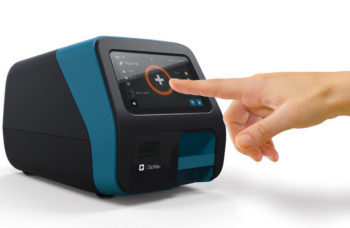Interim guidance for rapid coronavirus antigen testing in nursing homes released last week by federal officials raises a key question: Is the new point-of-care testing equipment up to the task?

The question is especially pertinent on the heels of sweeping regulatory changes announced by the Centers for Medicare & Medicaid Services. The agency will require nursing homes to test staff and offer testing to residents, while labs and nursing facilities using point-of-care testing must report diagnostic test results, McKnight’s reported in a Tuesday breaking news alert. More formal designations of the new rule-making, including frequency of testing are expected to come in sub-regulatory guidance issued later this week.
CMS and the Department of Health and Human Services are readying a second wave of rapid testing devices to ship to nursing homes. This federally funded national deployment of equipment is meant to address operators’ spotty access to coronavirus tests and to facilitate faster diagnostics. It’s a campaign that has been welcomed by industry advocates. But the devices — the Quidel Sofia and Sofia 2 Instruments and BD Veritor Plus Systems — are intended for use only in symptomatic patients within five days of symptom onset, the Centers for Disease Control and Prevention noted last week in its guidance.
As operators await more details on how to fulfill COVID mitigation requirements using these rapid antigen tests, the American Health Care Association says it is advising providers to follow their state and local public health guidelines and requirements.
“CMS and HHS recognized that providers will have many questions, but they did not want to delay in getting this program started and will be providing more guidance in the coming weeks,” the industry advocate said.
“The ability to frequently test residents and staff and receive reliable, rapid results is paramount,” AHCA added. “With rapid results, long-term care providers can better identify who has the virus and make tactical decisions to protect residents and staff. We appreciate CMS distributing these tests to hotspot areas and hope they will soon address these questions.”
About 40% of people infected with the coronavirus at any one time are thought to be asymptomatic and potential disease spreaders, according to the CDC. The agency has recommended expanded viral testing of all residents in a nursing home if there is an outbreak in the facility (with an outbreak defined as one resident testing positive). In addition, universal testing of staff and residents has been recommended by researchers as the best way to control coronavirus transmission.




